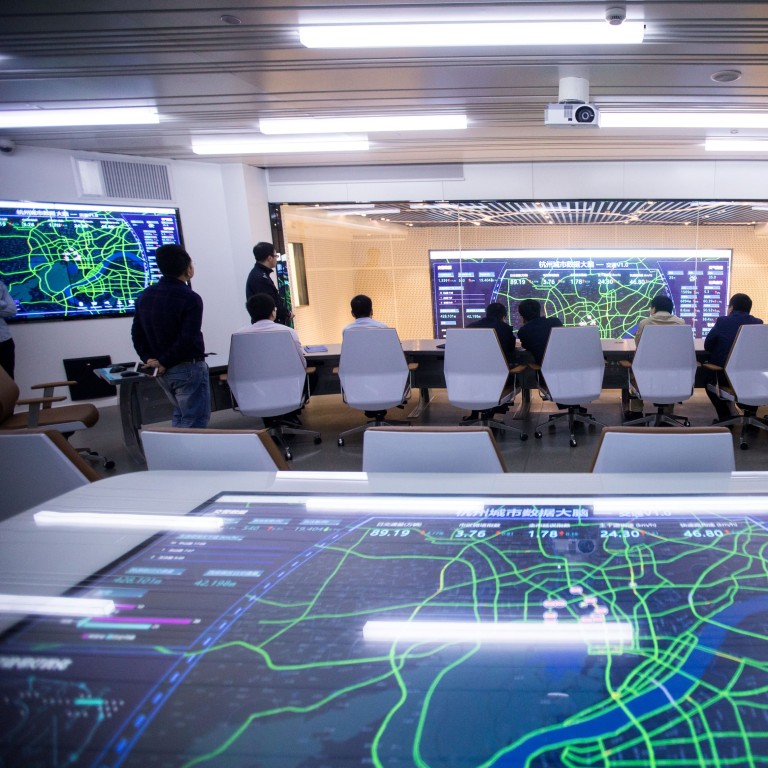
In Shanghai commuters can now beat jams and design their own bus routes with help from Alibaba’s AI tech
- Smart ‘Bus Brain’ calculates number of buses needed and optimal route for the No. 9 service between Songjiang district and Zhangjiang Hi-Tech Park
In an effort to beat traffic congestion and commuter fatigue, Shanghai has deployed its first bus routes guided by Alibaba’s artificial intelligence technology.
Commuters can buy a bus ticket via Alipay, the mobile payments service run by Ant Financial, and then AI algorithms produced by Alibaba crunch the data and generate the number of buses needed and optimal route for the No. 9 service between Songjiang district and Zhangjiang Hi-Tech Park.
Commuters first enter their preferred start and end location into the Alipay app. It then suggests the closest bus stops or alternatively, it is possible to generate a customised route. Passengers can also lock in their seats when they book a ticket in advance. The AI “Bus Brain” generates routes based on shopping history, maps and traffic information data.
Ant Financial is an affiliate of Alibaba Group Holding, parent company of the South China Morning Post.
President Xi’s dream city aims at all-round intelligent infrastructure
“‘The Bus Brain automatically design routes, stations, and the number of buses to put on the road,” said Cui Ting Ting, chief operating officer at Deer EV which operates the No 9 service. “Whereas a ride-hailing taxi serves around two to three passengers, the customised bus is a ride-sharing service for 40 people.”
The estimated travel time on the No 9 bus service end-to-end is about an hour and a half, faster than the metro, and at a ticket price of 18 yuan it is much cheaper than the average taxi fare of 150 yuan (US$12), according to information cited by Chinese local media and confirmed by an Alibaba spokesman.
Traffic congestion between Songjiang district and Zhangjiang Hi-Tech Park during peak hours is extremely heavy, according to a Xinhua news report, which says employees at the science park often crowd the same route in private cars.
China is pushing the adoption of smart city infrastructure as it ramps up competition in AI technology with the US, and in 2017 over 500 cities applied to introduce AI technologies in transport, security and finance, according to Xinhua news.
Google report shows most Hong Kong people do not rate city as smart
For more insights into China tech, sign up for our tech newsletters, subscribe to our Inside China Tech podcast, and download the comprehensive 2019 China Internet Report. Also roam China Tech City, an award-winning interactive digital map at our sister site Abacus.

